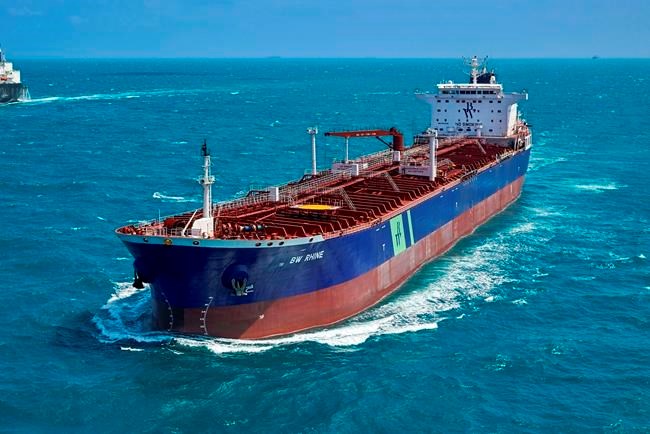DUBAI, United Arab Emirates — An oil tanker off Saudi Arabia's port city of Jiddah suffered an explosion early Monday after being hit by “an external source,” a shipping company said, suggesting another vessel has come under attack off the kingdom amid its yearslong war in Yemen.
The apparent attack on the Singapore-flagged BW Rhine, which had been contracted by the trading arm of the kingdom's massive Saudi Arabian Oil Co., marks the fourth assault targeting Saudi energy infrastructure in a month. It also apparently shut down Jiddah port, the most-important shipping point for the kingdom.
It also renews concerns about ship safety in the Red Sea, a crucial transit zone for global shipping and energy supplies that largely had avoided the chaos of regional tensions involving the U.S. and Iran last year.
The BW Rhine had berthed at Jiddah on Saturday, carrying over 60,000 metric tons of unleaded gasoline from an Aramco refinery at Yanbu for consumption in the kingdom, according to the data-analysis firm Refinitiv. It was there that the incident appears to have occured.
The ship was “been hit from an external source whilst discharging,” said Haifna, a tanker company under the BW Group that owns and operates the ship.
The strike caused an explosion and fire onboard the ship, though all 22 sailors on board escaped without injury and firefighters later extinguished the blaze, Haifna said. Some oil may have polluted the water along the ship, though the company said it was still assessing the damage.
Saudi Arabia had not acknowledged the blast hours later.
The United Kingdom Marine Trade Operations, an organization under Britain’s royal navy, urged ships in the area to exercise caution and said investigations were ongoing. It later said Jiddah port had been shut down for a “duration unknown,” without elaborating.
Dryad Global, a maritime intelligence firm, also reported the blast. The U.S. Navy’s 5th Fleet, which patrols the Mideast, did not respond to a request for comment.
No one immediately offered a cause for the incident. However, the explosion comes after a mine exploded and damaged a ship off Saudi Arabia last month. Another mysterious attack targeted a cargo ship off the small port city of Nishtun in Yemen’s far east earlier this month.
Yemen's Iranian-backed Houthi rebels have used sea mines before in their long war against a Saudi-led coalition. However, the Houthis have not commented last month's attack.
Dryad Global said if it was the Houthis behind Monday's blast, it “would represent a fundamental shift in both targeting capabilities and intent."
Since mid-November, there's also been what Saudi Arabia described as a bomb-laden drone boat attempted attack at Jazan, as well as a cruise missile attack claimed by the Houthis that struck an Aramco oil facility in Jiddah.
The incidents come after tensions between the U.S. and Iran last year saw a series of escalating incidents in the Persian Gulf, the Strait of Hormuz and the nearby Gulf of Oman. While the U.S. has put together a new coalition to monitor shipping there after those incidents, it doesn't operate in the Red Sea.
In recent weeks, an attack in Iran killed a prominent scientist who founded Tehran's military nuclear program two decades ago, an assault suspected to have been carried out by Israel.
The attack nudged up oil prices, which already had been rising in recent days as Western countries begin distributing coronavirus vaccines. Benchmark Brent crude stood above $50 a barrel in trading Monday.
The Red Sea, with the Suez Canal to the north and the Bab el-Mandeb Strait to the south, is a vital shipping lane for both cargo and global energy supplies. Its currents change seasonally and now run north. Saudi Arabia recently accused the Houthis of dumping mines into the southern Red Sea, which could be carried toward Jiddah.
The Red Sea has been mined previously. In 1984, some 19 ships reported striking mines there, with only one ever being recovered and disarmed, according to a U.N. panel of experts investigating Yemen’s war. Any new mining could endanger global shipping and be difficult to find for any minesweeping operation — raising the risks and potentially the cost of insurance for those sailing in the region.
“The series of escalations in the Red Sea will certainly raise the risk profile of the region,” said Ranjith Raja, the head of Middle East and North Africa oil and shipping research at Refinitiv. “This could in turn also increase the insurance premiums for added protection on vessels operating in the region, which would have an impact on the cost of shipment.”
___
Follow Jon Gambrell on Twitter at www.twitter.com/jongambrellAP.
Jon Gambrell, The Associated Press




